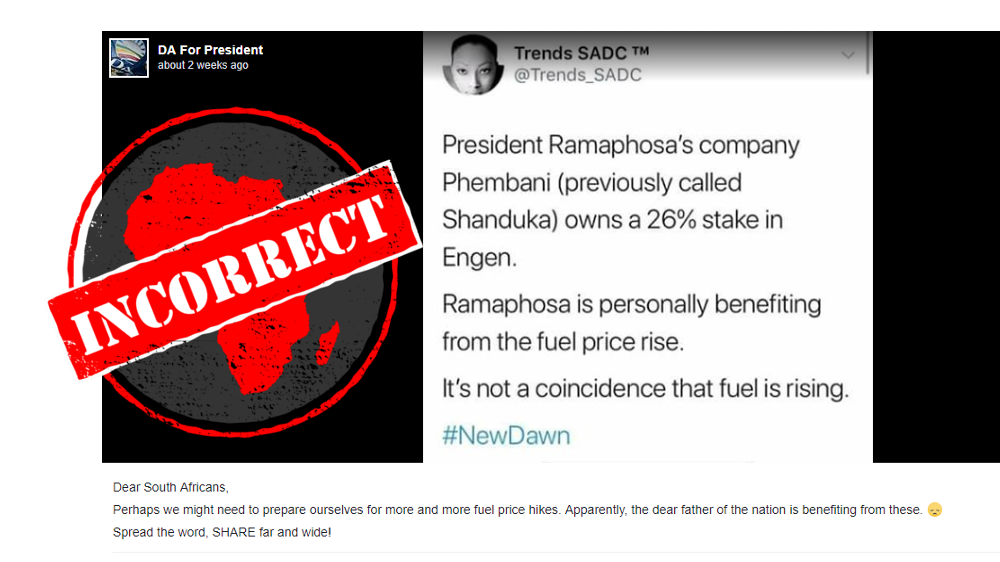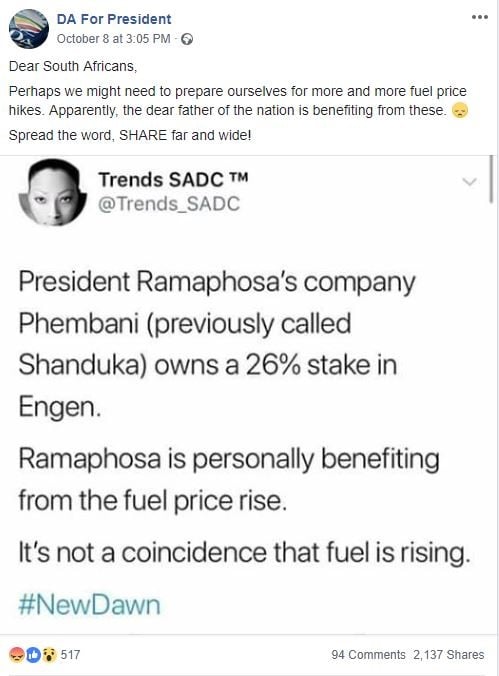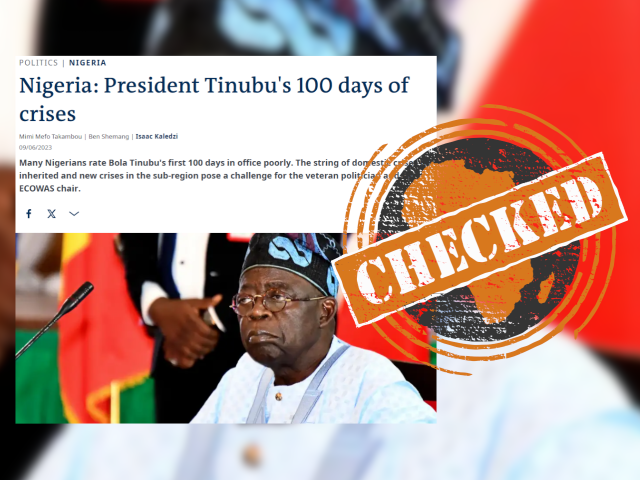
A Facebook page suggested South Africans shouldn’t expect any relief because the country’s President Cyril Ramaphosa was profiting from the increases.
“Apparently, the dear father of the nation is benefiting from these [hikes],” the page, DA for President (@DASouthAfrica), claimed on 8 October 2018.
(Note: The Facebook post is no longer available, but a screenshot can be seen here.)
It urged its more than 130,000 followers to share “far and wide” the screenshot it posted to Facebook of a tweet alleging Ramaphosa was “personally benefiting” from the price rises.
This was because “President Ramaphosa’s company Phembani (previously called Shanduka) owns a 26% stake in Engen”, the July 2018 tweet by the handle @Trends_SADC read.
President Ramaphosa’s company Phembani (previously called Shanduka) owns a 26% stake in Engen.
Ramaphosa is personally benefiting from the fuel price rise.
It’s not a coincidence that fuel is rising.#NewDawn pic.twitter.com/LigjYpQzA4
— Trends SADC ™ (@Trends_SADC) July 5, 2018
The page is allied to South Africa’s largest opposition party, the Democratic Alliance. A DA spokesperson, Refiloe Nt'sekhe, told Africa Check the page was a fan page “we have access to but [it’s] certainly not official”.

Ramaphosa sold Shanduka stake in 2014
Phembani is a private and unlisted black-controlled investment group that focuses on resources such as oil and gas. According to its website, Phembani leads a group that holds a 26% share in Engen Limited, a major energy player in Africa.
Ramaphosa established the Shanduka Group in 2001 as a black-owned investment holding company. He sold his entire stake in the company in 2014, the presidency said in 2017. But he continues to be involved in the non-profit Shanduka Foundation, now the Cyril Ramaphosa Foundation.
In December 2015, Phembani bought assets from Shanduka, Phembani’s chief of staff, Charlene Nyembe, told Africa Check.
“President Cyril Ramaphosa does not have any shareholding or any direct or indirect commercial interests in Phembani Group,” Nyembe said. - Lee Mwiti (22/10/2018)
Republish our content for free
For publishers: what to do if your post is rated false
A fact-checker has rated your Facebook or Instagram post as “false”, “altered”, “partly false” or “missing context”. This could have serious consequences. What do you do?
Click on our guide for the steps you should follow.
Publishers guideAfrica Check teams up with Facebook
Africa Check is a partner in Meta's third-party fact-checking programme to help stop the spread of false information on social media.
The content we rate as “false” will be downgraded on Facebook and Instagram. This means fewer people will see it.
You can also help identify false information on Facebook. This guide explains how.




Add new comment